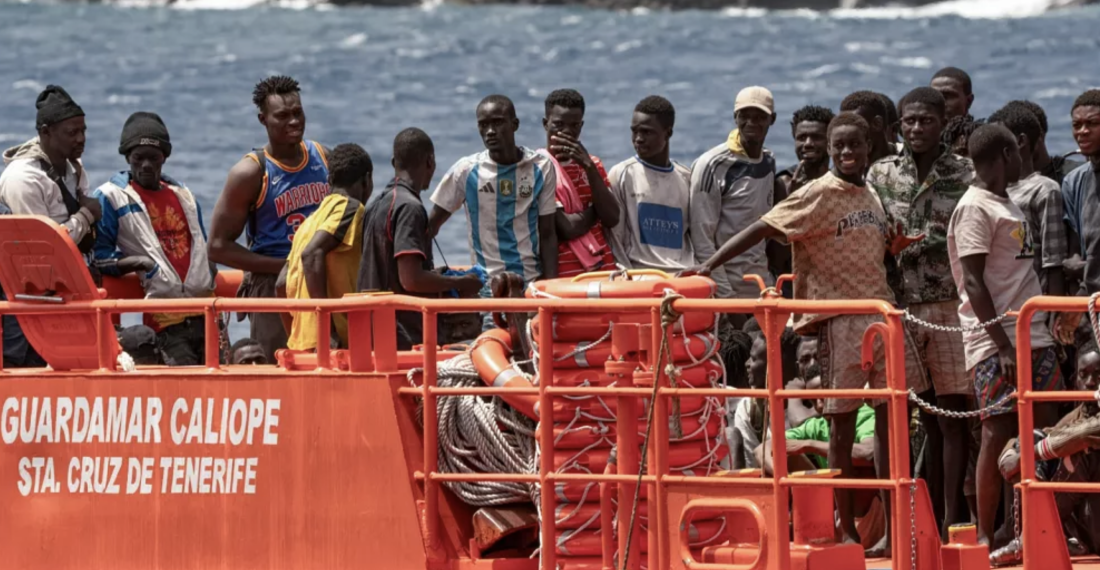Thousands of migrants have tried to cross the border from Morocco into the Spanish enclave of Ceuta in recent days, Spanish authorities said on Monday (26 August). Among these migrants, hundreds of young people have attempted to swim around border controls.
Cristina Pérez, the Spanish government's representative in Ceuta, told reporters on Monday (26 August) that since Thursday (22 August) an average of 700 people a day had tried to breach the border, with a peak of 1,500 attempts on Sunday (25 August). While Pérez did not specify how many migrants had successfully reached Ceuta, she noted that authorities were returning 150 to 200 people a day to Morocco under Spanish laws that allow for 'border rejections'. She thanked the Moroccan authorities for their "loyal cooperation".
Ceuta and Melilla, two small Spanish territories in North Africa bordering the Mediterranean, have long been focal points for migrants and refugees seeking a better life in Europe. Many try to scale the razor-wire fences surrounding the autonomous cities or reach them by sea. Due to its geographical location, Spain relies heavily on Morocco's cooperation to control these borders and prevent migrants from crossing.
In 2021, after a diplomatic rift between the two countries, thousands of people, including many unaccompanied Moroccan children, flooded into Ceuta within days, overwhelming Spanish authorities. Although Spain and Morocco have since restored diplomatic relations and cooperate on irregular migration issues, Ceuta authorities report renewed pressure this year. According to Spanish Interior Ministry statistics, 1,622 migrants arrived in Ceuta between January and mid-August, compared to just 620 in the same period last year.






